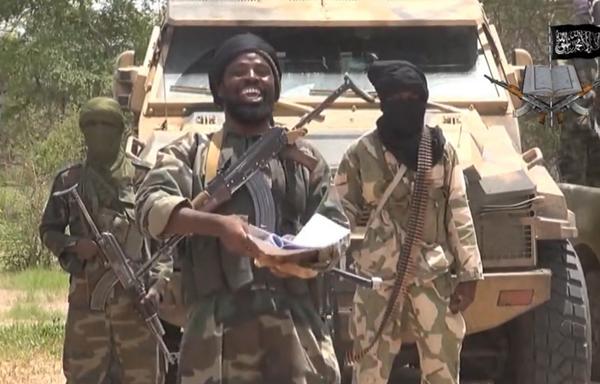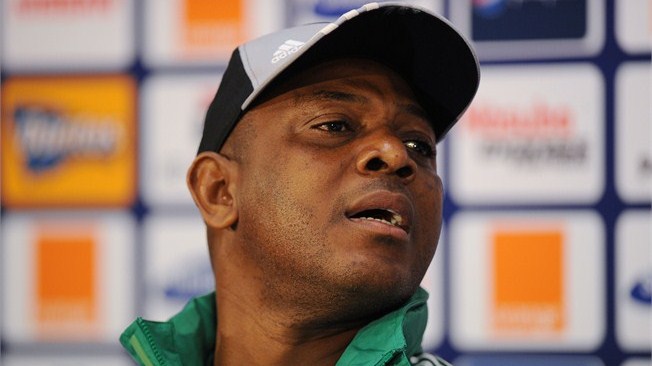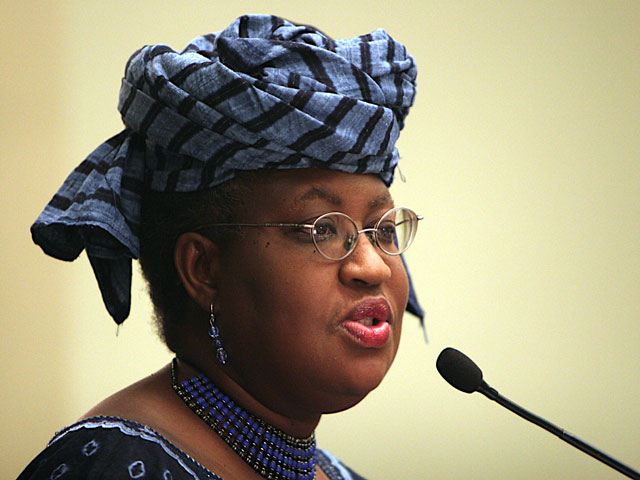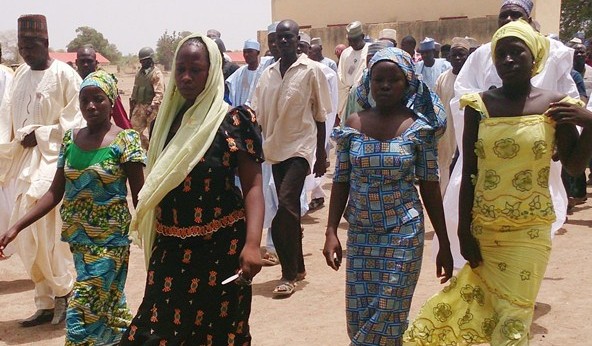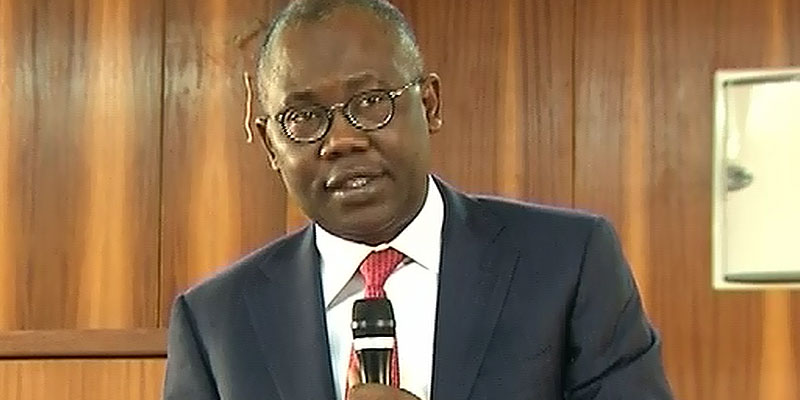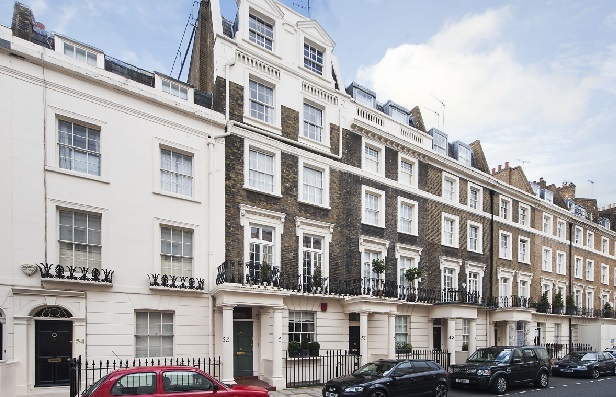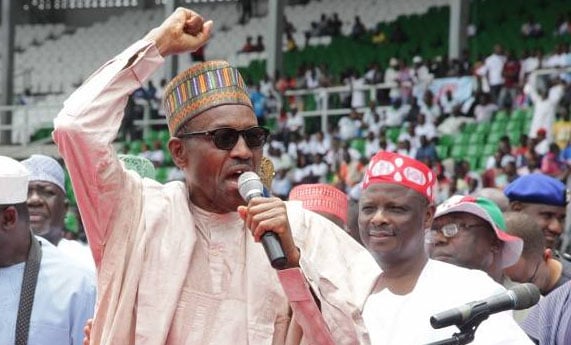Last week started on a cheery note in Nigeria with the World Health Organisation (WHO) declaring the nation free of Ebola Virus Disease (EVD). On the international scene, the sentencing of Oscar Pistorius attracted considerable attention. Here is a roundup of last week’s top stories.
CEASEFIRE OR CROSSFIRE?
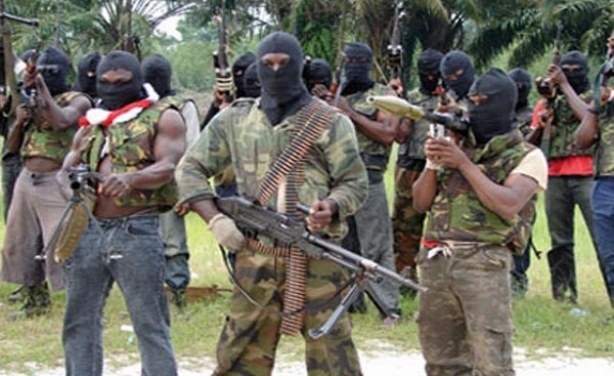
Hopes were high when Alex Badeh, an air chief marshal and chief of defence staff, announced on Friday, October 17 that the federal government had reached a ceasefire deal with Boko Haram. The deal was expected to result in the release of the over-200 schoolgirls abducted by the insurgents in April. However, Boko Haram has launched fresh attacks on communities in Borno and Adamawa states. A bus station in Azare, Bauchi state, was also hit on Wednesday night by a suspected Boko Haram bomb attack, killing at least five persons, with 12 others sustaining severe injuries. Also, security forces reportedly killed 50 Boko Haram militants while repelling an attempt of the insurgents to strike at Damboa, 87 kilometres away from Maiduguri, Borno state capital.
The renewed attacks have forced Nigerians to doubt the validity of the ceasefire deal. However, security chiefs who spoke with TheCable have blamed the apparent failure of the ceasefire deal on the factionalisation of Boko Haram.
Advertisement
“We are going to be in this a little longer,” a senior military officer conversant with the details of the negotiation told TheCable, adding that the military had always worked with the theory that Boko Haram has many faces.
Moussa Mahamat Dago, an official of the Chadian government. which brokered the supposed peace deal, also told Reuters that negotiations were still on.
“Quite possibly, those that are fighting are dissidents that even they aren’t able to control. So far, there is no reason for others to doubt this agreement,” he said. Meanwhile, security sources said that Boko Haram has requested two conditions – a prisoner swap and blanket immunity from prosecution for all its members – to effect the ceasefire deal.
Advertisement
EBOLA EXITS NIGERIA, BUT CROSSES MORE BORDERS
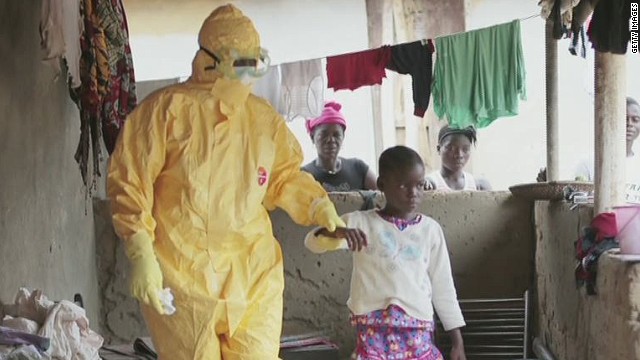
While the world was rejoicing with Nigeria, which was declared Ebola-free by WHO, Mali and New York recorded their first cases of the disease. Craig Spencer, a healthcare worker who worked on Ebola in Guinea but recently travelled to the United States, was diagnosed with it on Thursday. Mali’s case was a two-year-old girl brought into the country from neighbouring Guinea, where she had lost her father to the disease. She died on Friday, three days after she was first taken to a clinic.
On the cheery side, Nina Pham, a Dallas nurse who was part of the team that treated Eric Duncan, the first person to be diagnosed with Ebola in the US, is now free from the disease. Pham, who was diagnosed with the disease on October 12, started receiving treatment at the National Institutes of Health, Bethesda, Maryland, on October 16 after being earlier treated at Texas Presbyterian Hospital.
HOW LONG CAN TAMBUWAL KEEP HIS DEFECTION SECRET?
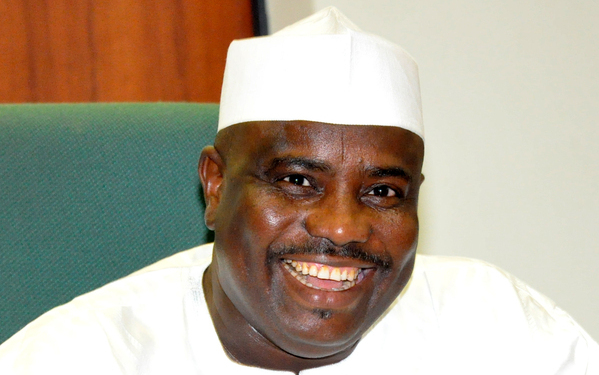
Advertisement
After months of hovering between two camps, Aminu Waziri Tambuwal, speaker of the house of representatives, finally defected from Peoples Democratic Party (PDP) to All Progressives Congress (APC) on Monday. He is yet to make a formal announcement of his defection, thought, his spokesman saying that “consultations on the speaker’s political future continue and the outcome will be made public in due time”. Nevertheless, TheCable understands that Tambuwal is only delaying his formal announcement to allow him size up the reactions of his former party, which is likely to move against him both legally and politically.
The speaker’s plan to dump PDP has been an open secret long before he registered with APC in his hometown, Tambuwal, Sokoto state, shortly after attending a meeting of the party’s stakeholders in the state capital. As a member of the ruling PDP, he has openly associated with the opposition without formally defecting. The new development may however have far-reaching consequences for the speaker, which may include losing his seat in the house.
CONSTITUTION AMENDMENT: NASS DONE, 36 STATES NEXT

Nearly one week after the house of representatives voted to bypass presidential assent on bills, the senatealso endorsed the amendment of the constitution without the assent of the president. Prior to the development, Section 9 of the 1999 constitution mandated the legislative chamber to get the approval of the president before executing such exercise. Furthermore, the senate voted to adopt a proposal mandating the president to deliver a state-of-the-nation address to a joint meeting of the national assembly once a year. Hitherto, the president had always addressed the nation at his discretion.
Advertisement
The senate also passed the harmonised version of the amended constitution that was approved by the house of representatives but retained the immunity clause for the president and governors, which was removed by the lower chamber. It amended Sections 65 and 106 of the 1999 constitution to enable independent candidates contest future elections in the country. The national assembly also amended Section 7 to grant financial and administrative autonomy to the 774 local governments areas of the country. In all, both chambers ratified 23 clauses and sections that had been amended. The amended document will be sent to the 36 states houses of assembly for ratification.
NIGERIA NOT BROKE, OKONJO-IWEALA ASSURES NIGERIANS
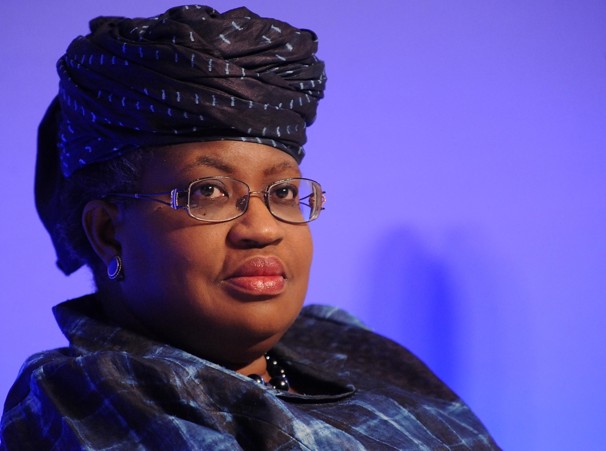
Advertisement
Ngozi Okonjo-Iweala, the minister of finance, on Tuesday assured Nigerians of positive growth in the economy despite reduction of oil price in the international market. Speaking a the ministerial platform in Abuja, she refuted speculations in some sections of the media that Nigeria was broke. The minister said that although Nigeria was faced with fluctuations in quantity and price of oil, which had negatively affected the amount paid into government coffers, this did not mean the country was broke.
“We still have resources that we depend on; we still have the ability to tax,” she said. Emphasising government’s determination to diversify the economy, she said government was doing everything within its power to ensure economic stability in the country, including budgeting below the existing oil price to help build buffers in case of uncertainty.
Advertisement
SOUTH AFRICA RETURNS NIGERIA’S $15M
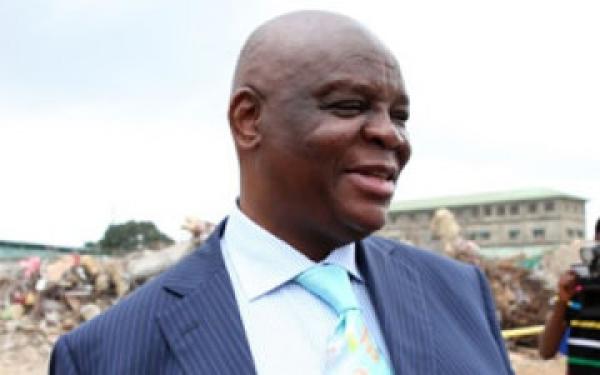
The tension in diplomatic relations between Nigeria and South Africa may have been slightly eased with the return of Nigeria’s $15m, which South African authorities seized in connection with two failed arms deals. Lulu Louis Mnguni, South African ambassador who confirmed this to the press on Friday, also commented on the September 12 collapse of a guest house at the Synagogue Church of All Nations, Ikotun, Lagos, which claimed the lives of many South Africans.
Advertisement
Mnguni said the seizure of the funds by South African government had no connection with the Synagogue collapse as both of them were separate events. He added that the accident could only strengthen the bond between both countries.
“South Africa’s relations with Nigeria comes a long way, so now this actually will make us much more closer, to see how we can close some of these gaps that result in such accidents,” Mnguni said.
He described South Africa’s relations with Nigeria as “priceless”, saying it could not be sold for $15m.
$1BN EQUIPMENT LOAN FOR WAR AGAINST INSURGENCY
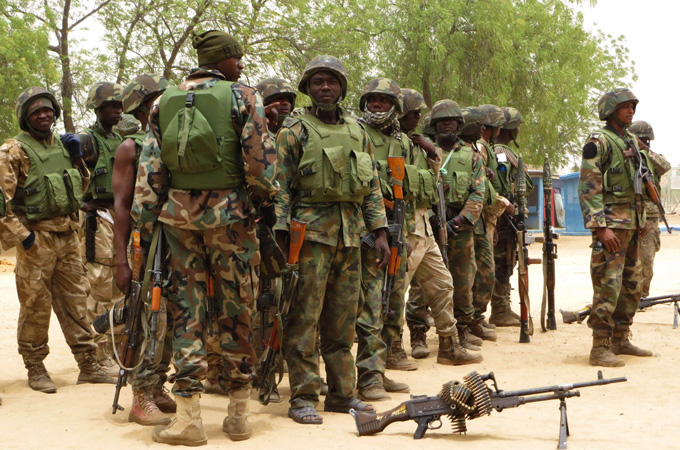
The war against insurgency received a boost on Wednesday with the approval of President Goodluck Jonathan’s $1bn loan request to tackle Boko Haram. The president requested the loan on July 16 for upgrading equipment, training and logistics of the armed forces. However, the national assembly could not attend to the request until two months later, having embarked on a two-month recess just two days after Jonathan presented the request. The senate eventually approved it September 25 after reconvening.
The house of representatives followed suit on Wednesday when the plenary considered and adopted the report on the loan earlier submitted by the joint committee on aids/loans/debt management and finance. The committee had recommended that the house should “approve the request of Mr President on the need for his administration to borrow not more than $1bn for the purpose of tackling the current national security challenges”. An attempt by Andrew Uchendu, an All Progressives Congress lawmaker from Rivers state, to stop the approval was overruled by Emeka Ihedioha, the deputy speaker who presided over the session.
FROM TRACK AND FIELD TO PRISON
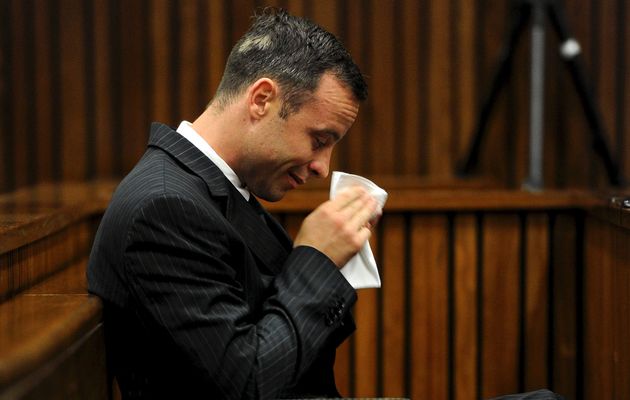
The trial of South African athlete, Oscar Pistorius, which had been keenly followed globally, was concluded on Tuesday. Pistorius was sentenced to five years in prison for killing his girlfriend, Reeva Steenkamp. He was also given a three-year suspended sentence for a firearms charge.
Judge Thokozile Masipa, who refused the prosecution’s request of a minimum 10-year sentence for the 27-year-old double amputee, said that “Sentencing is not a perfect exercise” but “about achieving the right balance”. Pistorius was convicted of culpable homicide but cleared of murder. He was immediately escorted to the prison after the judgement.
WE ALL KNEW IT. JONATHAN WILL SEEK REELECTION
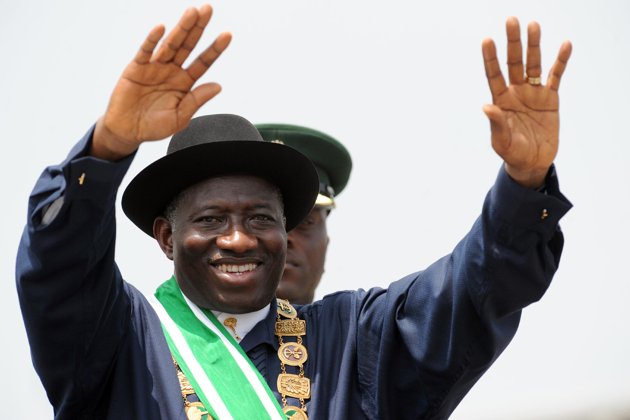
President Goodluck Jonathan has told leaders of the Peoples Democratic Party (PDP) that he would pick the presidential nomination form of the party before October 30, 2014, the deadline. At a meeting on Thursday afternoon at House 7 of the presidential villa, Bello Halliru Mohammed, former acting PDP national chairman, was appointed to head the declaration committee.
At another meeting, also held at the presidential villa, Jerry Gana, a former minister of information, was appointed to head a fundingraising committee for the campaign. The president will formally declare his intention to contest the 2015 presidential election on Tuesday, November 11, 2014.
BUHARI: NIGERIA CANNOT BE TRANSFORMED OVERNIGHT

In an interview with TheCable, Muhammadu Buhari, former head of state and a presidential aspirant of the All Progressives Congress (APC), addressed issues relating to his candidature, the state of the nation and how he hopes to turn things around if elected president. On the possibility of a Muslim-Muslim ticket, which has been seen as a potential setback for the APC in the election because of the increasingly political nature of religion in recent years, Buhari said, “I have not absolutely closed my mind to picking a Christian or a Muslim as running mate if I get the ticket. Because I firmly believe that Nigerians, having gone through what they have gone through, realise it is not a matter of religion, but a matter of Nigeria.”
Expressing his position on the issues of fiscal federalism, resource control and restructuring of the federation, Buhari said “the important thing is to change Nigeria”, adding that the desired transformation could not be achieved overnight. Observing that there was no point deceiving Nigerian voters, he said: “For anybody to come and create the impression that he can work wonders [is a lie]. Nigerians have to be prepared to suffer at least five straight years before we can stabilise this country, security wise and economically because so much damage has been done and Nigerians are feeling it.”
Add a comment
